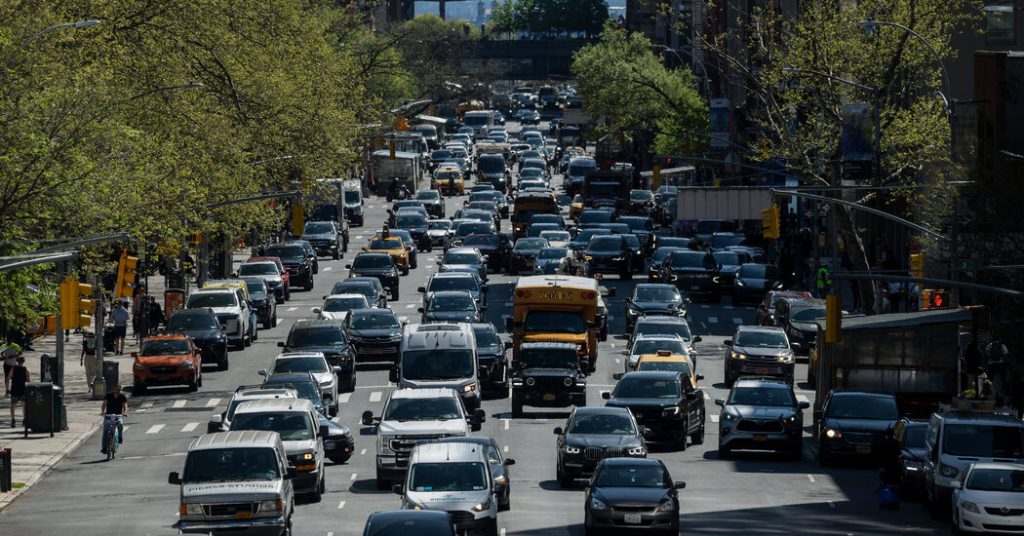Advocates and organizers of congestion pricing in Manhattan were shocked and angry after Governor Kathy Hochul indefinitely suspended the plan to toll drivers in the city’s core commercial district. The plan had been years in the making and was seen as a way to transform the city’s busiest streets while setting an example for other cities dealing with traffic and pollution. The disappointment was palpable among those who had fought for congestion pricing, with many feeling betrayed by the governor’s decision. The Riders Alliance, a grassroots organization of transit riders, even held a protest outside Governor Hochul’s offices in response to the announcement.
The Metropolitan Transportation Authority, which was set to oversee the program and collect the expected $1 billion in revenue annually, faced a crushing setback with the suspension of the plan. The authority had been defending itself from numerous lawsuits opposing the program, with opponents arguing that the tolls would unfairly burden commuters and divert traffic to other neighborhoods. Governor Hochul’s decision to suspend congestion pricing was met with approval from these opponents, who claimed that the program would only shift pollution, congestion, and costs onto struggling communities. The United Federation of Teachers, one of the organizations that had filed a lawsuit against congestion pricing, applauded the governor for her actions.
Congestion pricing had been touted as a solution to reduce traffic and pollution in Manhattan’s most congested streets while also boosting travel speeds in the city. The funds raised through the tolls would have been used by the M.T.A. to secure $15 billion in bond financing for much-needed improvements to New York City’s transit network. The plan, which would have been the first of its kind in the United States, would have charged most motorists $15 to drive into popular areas like Times Square, Hell’s Kitchen, and Chelsea. While cities like Stockholm, London, and Singapore have successfully implemented similar programs, New York City would have been a trailblazer in the nation.
Supporters of congestion pricing, including former city traffic commissioner Samuel I. Schwartz, expressed disappointment over the suspension of the program. Mr. Schwartz highlighted the environmental benefits of reducing motor vehicle emissions and the lost opportunity for infrastructure upgrades that could have created jobs. He described the decision as an economic blow to New York and expressed regret over the potential positive impacts that will now be missed. The hope for a transformational change in the city’s traffic and pollution issues was dashed with Governor Hochul’s move to postpone the tolling scheme, leaving supporters and advocates reeling from the unanticipated setback.
Ultimately, the indefinite suspension of the congestion pricing plan in Manhattan by Governor Kathy Hochul has generated widespread disappointment and anger among advocates and supporters of the program. The decision to delay the tolling scheme, which aimed to transform the city’s busiest streets and reduce traffic and pollution, has been met with criticism from those who see it as a missed opportunity for New York City’s recovery and transit network improvement. Despite opposition from those concerned about the impact on commuters and neighborhoods, congestion pricing had been seen as a crucial step towards addressing the city’s transportation challenges and reducing emissions. The future of congestion pricing in New York City remains uncertain, as advocates continue to push for its implementation while grappling with the setback caused by the governor’s decision.


